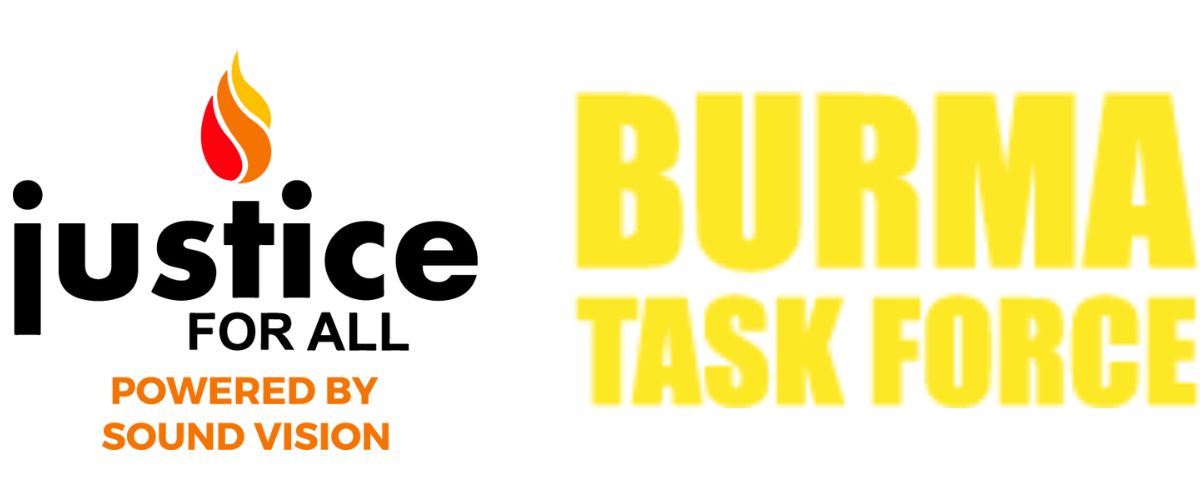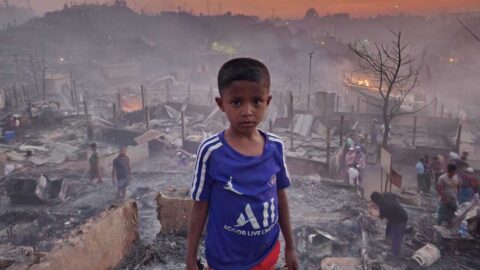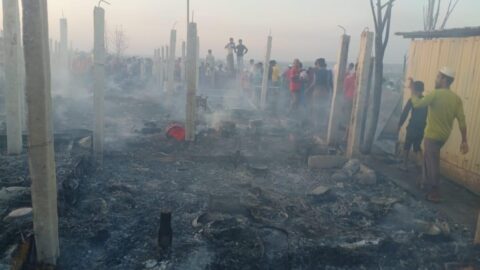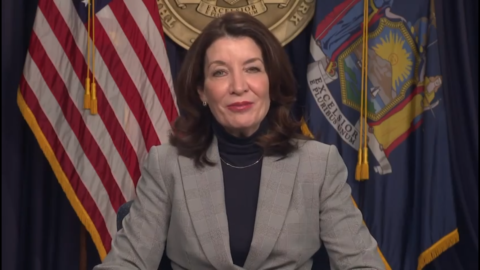According to Burma Task Force Staff on the ground, a massive fire swept through parts…
Islamophobia and The American Muslim Poll 2020
Today we will discuss with our guest the phenomenon of the spike in Islamophobia during election years. We will also analyze the consistency of dissatisfaction, by Muslims, in the direction of the country.
Guest:
Dalia Mogahed is the director of research at ISPU, where she leads the organization’s pioneering research and thought leadership programs on American Muslims. She is the former executive director of the gallup center for Muslim studies, where she led the analysis of surveys of Muslim communities worldwide.
Tell us a bit more about the history of this poll.
About five years ago, we decided to do an American Muslim poll at ISPU. It was very important for us to not only survey Muslims, but to also survey other faith groups so we were not just studying Muslims as an isolated specimen. We were understanding Muslims within their faith landscape of the country.In 2016, we did the first poll of American Jews, American Muslims, and the general public. Then we were able to break out the general public into the major faith groups. This poll is important because it is the only systematic measure of American Muslim opinion, viewpoints, demoraphics that happens every single year and has a comparison with other faith communities and non faith communities in America. Really giving American Muslims a voice that is representative.
Questions
What were some of the findings that were surprising to you?
Three years ago we created the Islamophobia index. We look at 5 different questions, and we measure the level of agreement a respondent has with 5 different anti-Muslim tropes. We look at that year to year to gauge how things are changing and what groups have endorsed Islamophobic tropes more than others. This year Islamophobia has not gone up dramatically from 2019. Jewish Americans, over the past three years, have consistently decreased in their endorsement of Islamophobic tropes, this year American Jews and American Muslims are the same on the Islamophobia index. Some Muslims do endorse anti-Muslim tropes.
What are you going to do with this information now?
What I’d like to do with this information is get it out to as many people as possible, because what we are trying to do is inform dialogue and decision making regarding the community. We want everyone working on the ground on any topic regarding our community to be well informed, to have the information they need to make good decisions. If we can do that, then we are succeeding. But the real work is in the hands of practitioners and local community leaders, who we hope will take this information and implement it so they are building programs and making decisions based on facts.
Quotes and Hashtags
Politics, not religion, predicts Islamophobia.
Endorsement of five stereotypes is linked to agreement with anti-Muslim policy: American Muslims are more violent, are discriminatory against women, are partially responsible for acts of violence enacted by another Muslim, are hostile towards the United States, and are less civilized than other people. #StopIslamophobia #EducateYourself
When people believe the stereotypes, they are more comfortable with surveillance of Muslims, 4the Muslim ban, and even taking away Muslim American’s right to vote. #EndIslamophobia
What makes a poll scientific and representative is the way a sample is chosen, not just a sample size. If a poll is not random, it can be as big as you want, it will not be representative. Our sample is chosen from phone numbers called at random on both landline and cell phone.
25% of Muslims that say they experience discrimination, specify that it is in health care. Even Muslim doctors have experienced Islamophobia from their own patients.
Whether it is law enforcement, or airport security, or even a nurse or doctor, everyone is consuming the same media and toxic communication. This will sometimes come out in their behavior if they have these biases.
Muslim children are experiencing institutional bullying, not only by students but teachers and admin as well.
Around half of Muslim families with children K-12 reported bullying because of their faith. Muslims are twice as likely to report this type of bullying than the general public. A third of the time, the bully is the adult in the room targeting the child.
A major media outlet did a full length segment on Islamophobic bullying when the stats came out. Anti-Islamophobic bullying campaigns were implemented in a school system in California as well as in the Boy Scouts. #EndIslamophobia
Endorsing Islamophobic tropes is linked to experiencing more regular religious descrimination. It is speculated that because of regular discrimination, one way people are coping is distancing themselves and placing heavier blame on other minorities.
In findings like Trump supporters that are Muslim, even though at 14% it is the lowest of any faith group, we see that they share a whole lot with Trump supporters in the general public. They support the Republican Party, oppose building coalitions with BLM and support conservative religious groups on religious liberties.
33% of Muslims, as of March 2020 were undecided in their political alliance, so it is important not to take Muslims for granted in the political arena. 15% of eligible Muslims stated they did not plan to vote. #KnowYourVote
Muslims are as split on hot button issues as most of the nation. #DiversityIsEverywhere.




